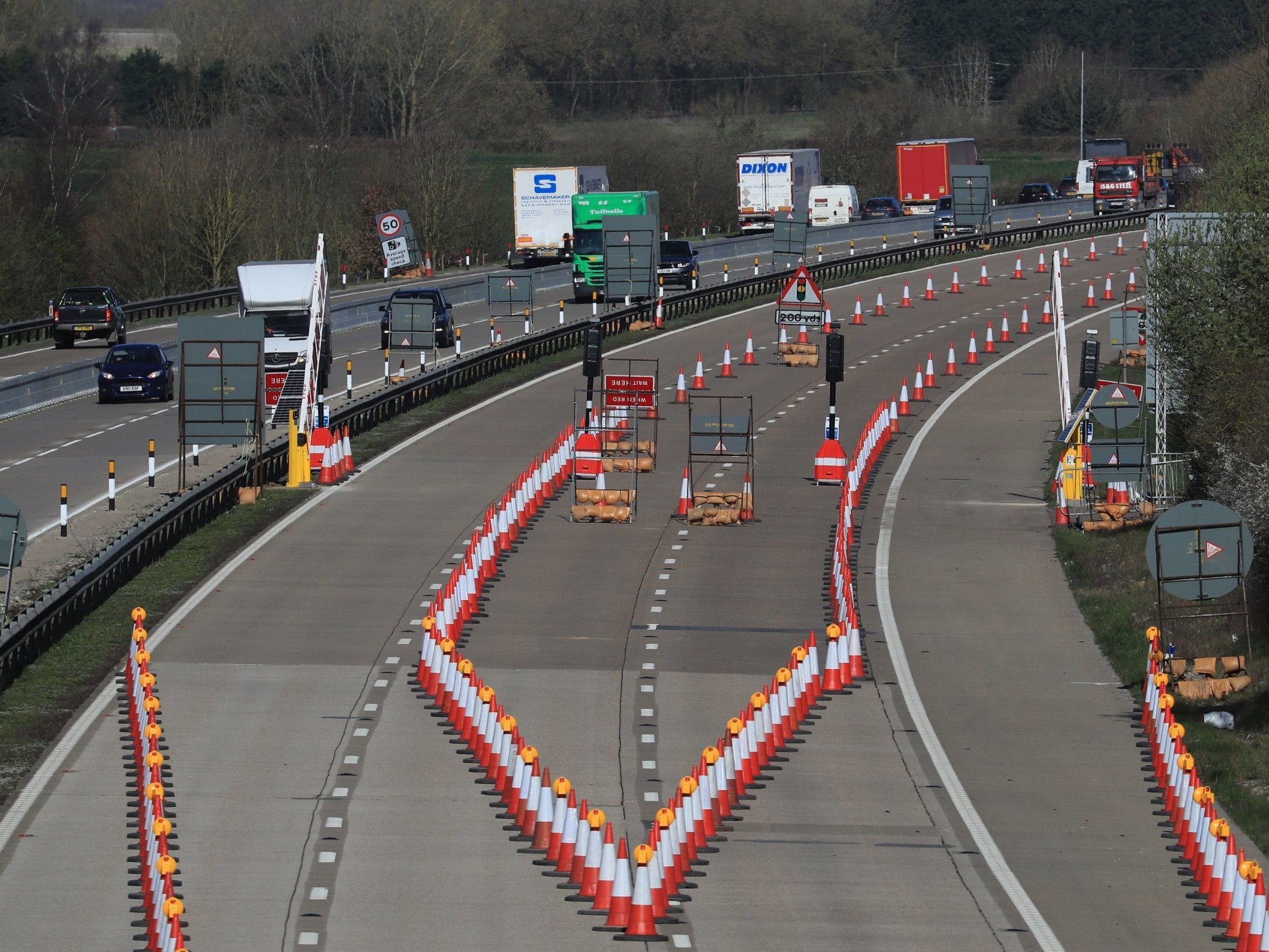Operation Brock: No-deal Brexit plan is safe despite crashes and breakdowns, Highways England claims
'Our position, when it comes to Brock, is we are not overly impressed with Brock', says vice president of ferry operator DFDS

After a series of accidents, criticism from ferry companies and port operators reserving judgement, Highways England has insisted its no-deal Brexit plan is safe and effective.
Operation Brock was designed to ease congestion if traffic towards the port of Dover grinds to a standstill.
But the vice president of ferry operator DFDS saying he was “not at all impressed” with the plan, while Dover port bosses meanwhile, said they were reserving judgement on the operation's success although they admitted admitted they are not convinced it is the best solution.
Highways England however, said there had only been an estimated half a dozen crashes and breakdowns in the contraflow system in Kent since it was introduced on 25 March, although a spokesman admitted he was unable to provide accurate figures.
Kasper Moos, vice president of ferry operator DFDS in the UK, however said: “Our position, when it comes to Brock, is we are not overly impressed with Brock.”
He said sending traffic “all the way up north” was not the preferred solution and traffic management should be a secondary priority to ensuring custom declarations were ready in time for lorries to cross the border.
He added: “The way Brock is planned is for sure not our preferred solution. We cannot take responsibility for what has been planned in the roads of Kent. We have not succeeded to affect that decision.”
He said transport bosses were not in “any doubt” of the company’s position”, adding: “We have been clear on that.”
But he added: “I accept planning for Brexit is not an easy task. I accept it is extremely difficult to plan.”
He said a better solution would be a permanent plan, adding: “I see there is a need for trucks to stay overnight in Kent.”
A Highways England spokesman said the operation was “continually under review” and had been designed so any incidents could be dealt with quickly and safely, with a free recovery service available.
He added that there was “no evidence” to suggest the road layout was the cause of accidents or that numbers had risen on that stretch of motorway since the plan was brought in.
Although Highways England accepts any disruption is made worse by the system – an inevitable outcome of any temporary roadworks or traffic management measure.

It comes as DFDS urged lorry drivers to fully prepare for Brexit, saying it is vital customs declarations are completed before lorries arrive at ports.
The company, which operates crossings from Dover, Newhaven, Newcastle and Felixstowe, has invested in technology and infrastructure in a bid to help customs officials receive the information they need quickly and make decisions while lorries are crossing the English Channel.
Additional reporting by Press Association
Join our commenting forum
Join thought-provoking conversations, follow other Independent readers and see their replies
Comments
Bookmark popover
Removed from bookmarks